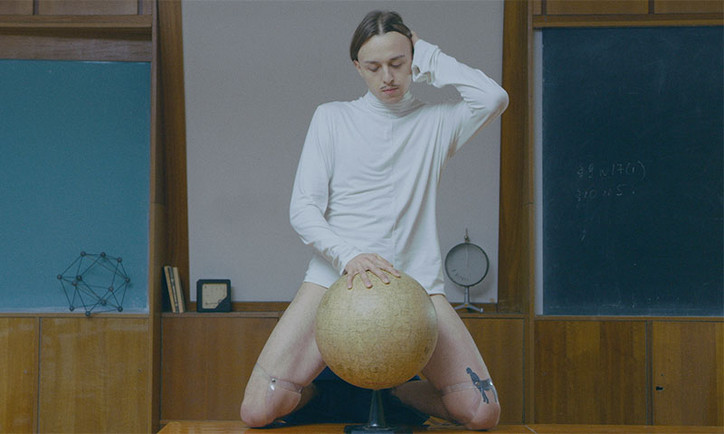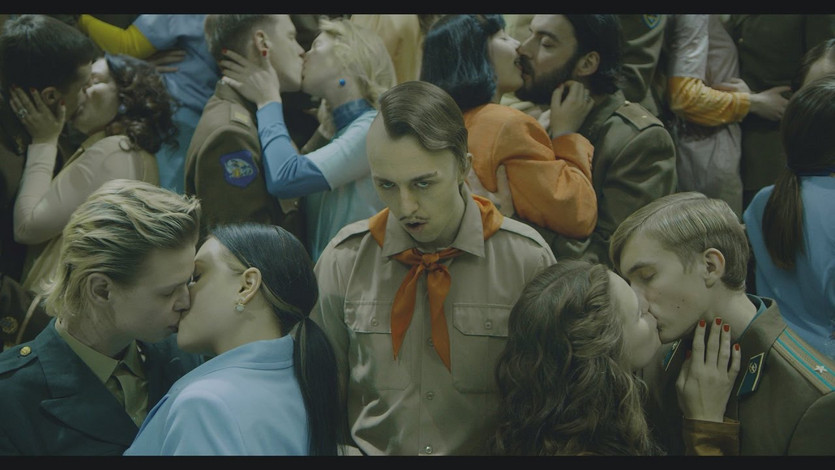MARIA wears JACKET by ALPHA INDUSTRIES, TOP and SKIRT by MIU MIU, SHOES by NIKE, SOCKS stylist's own
Stay informed on our latest news!
Stay informed on our latest news!
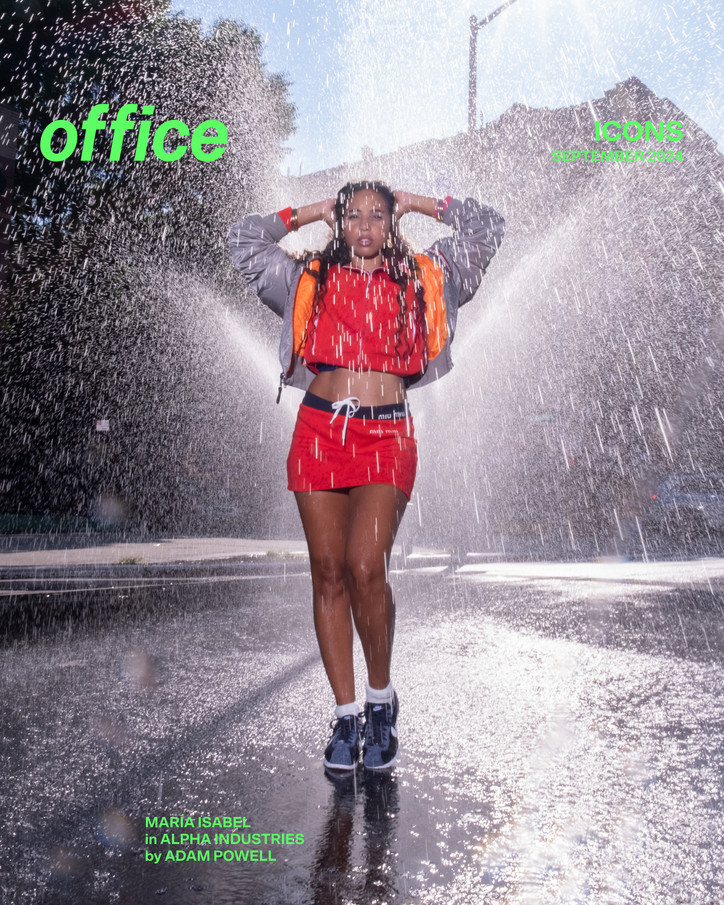
MARIA wears JACKET by ALPHA INDUSTRIES, TOP and SKIRT by MIU MIU, SHOES by NIKE, SOCKS stylist's own
Calling in from a sunny Los Angeles, María reflects on how much she’s changed since releasing her first two projects, her 2020 EP Stuck in the Sky and 2021’s i hope you’re very unhappy without me—reflections on love, loss, and long-distance relationships, which immediately drew attention for their introspective lyricism and bilingual fluidity. "A lot of the time, I get messages from listeners saying they found a song at a really hard time, and it helped them get through something. Even with my first EP, which was all about long-distance heartbreak, people have told me that it resonated with them in the same way," she muses on the emotional resonance of her previous projects and her thought process as she works on the next.
"I feel like I’m letting go of things I had envisioned for a long time, but in a way that’s been positive," she continues. "Loss and change are hard, but I feel lighter, and I’m a better version of myself now." The lessons she’s learned, she explains, continue to ripple through others. "That’s the most gratifying feeling—knowing my work isn’t just for me, but that it can help at least one other person."
Read our interview below.
Before becoming a full-fledged musician, you were a poet. What inspired the shift to pursue music full-time?
They were always separate loves for me. Writing felt natural because I loved reading, and it was my first way of expressing myself and I grew up singing, whether in talent shows or my church choir — but always singing other people’s songs. It's funny looking back because I don't know why it took me until adulthood to connect the two.
After college, I realized music was what I really wanted to do, and that I wanted to sing my own words. Going to the studio helped me take what I'd been writing for years and put music to it. That's when the two finally made sense for me.
Do you remember the first song you ever wrote?
I do, I’d there are two "first" songs. Technically, the first was when I was five. I got stuck on a line, "Won't you get out of my dreams?" and I just repeated that for two minutes. I was really proud of it at the time. As an adult, the first song I wrote was for a songwriting class — it definitely wasn't great, but it was a key moment. I just took one of my poems and played simple piano chords under it for the class, which was my first time connecting the two in front of people.
Are there any daily rituals that you’ve followed since then?
Yeah. I have two daily rituals: calling my mom and hitting my snooze button at least twice when I wake up in the morning. [Laughs].
What’s the biggest lesson you were taught that still rings true to you today?
I think the biggest lesson I was taught is “closed mouths don’t get fed.” You have to ask for what you want, no one knows otherwise.
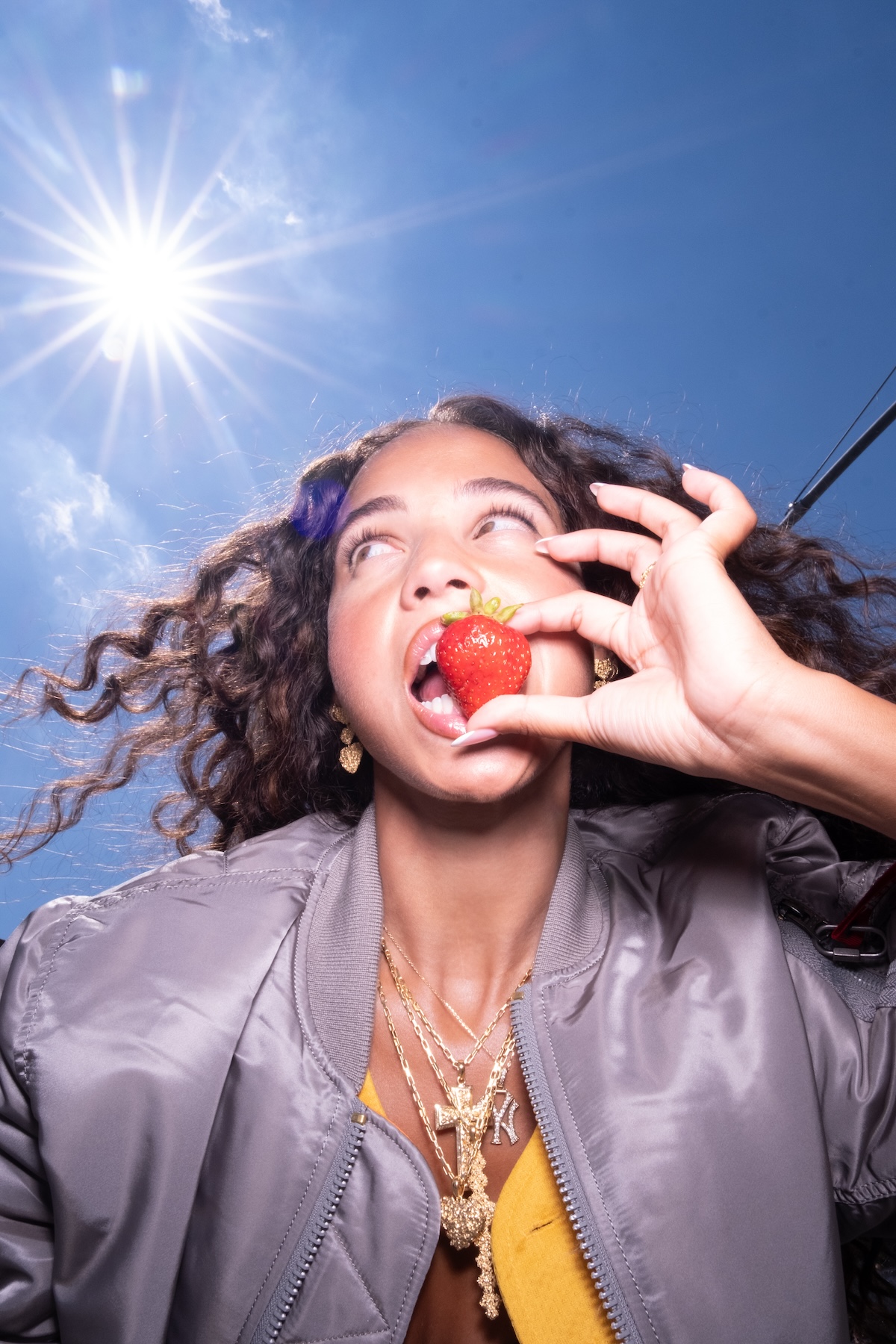
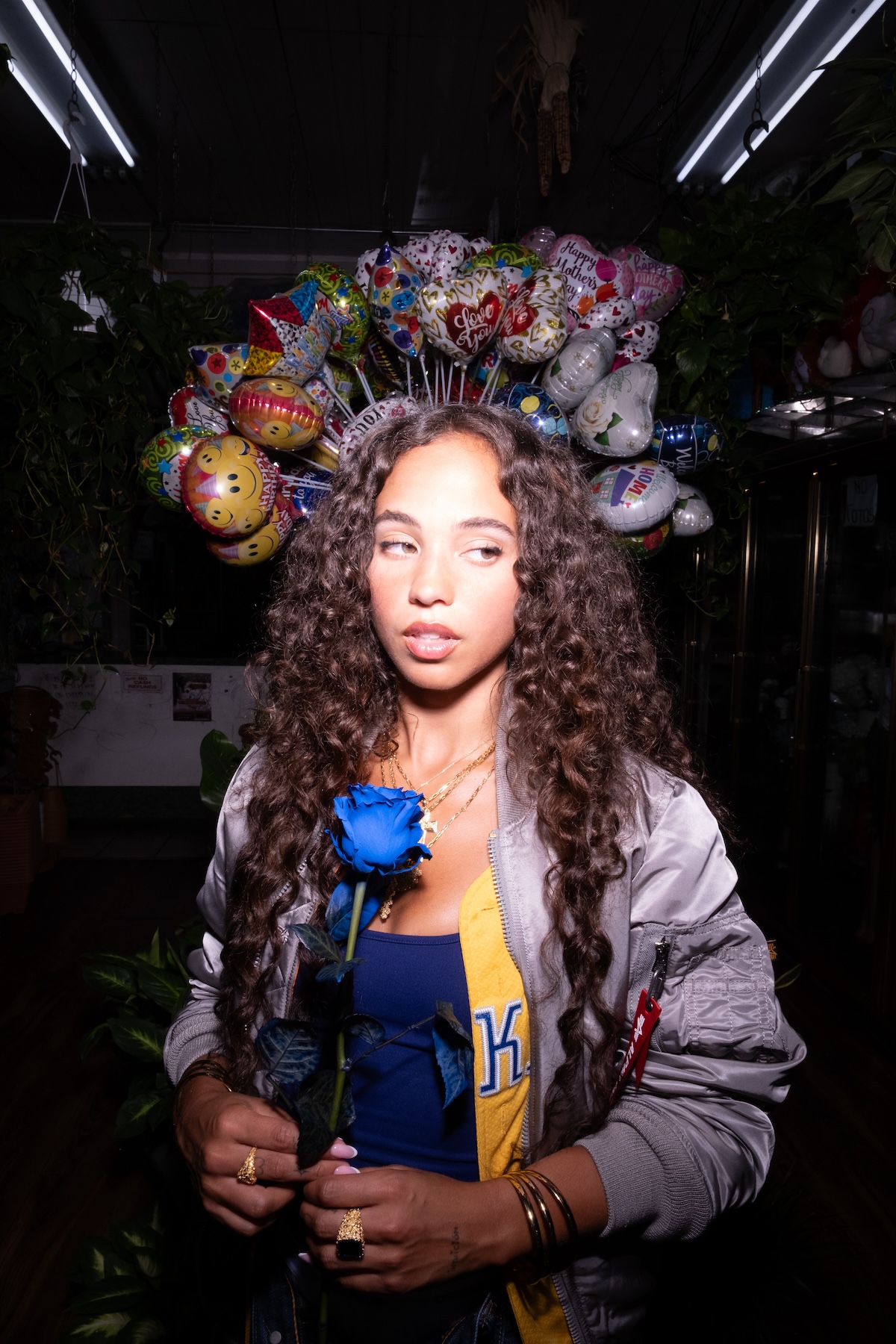
The lyrics in your songs feel very emotionally charged. Do you consider yourself an emotional person?
I'm definitely an emotional person, which is what really spearheaded my interest to write in the first place. At first, it was an outlet for negative emotions, so a lot of my early songs were slow and a bit sad because that's what I was drawing from. That’s changed as I’ve grown. Now, I try to pull from the full spectrum of my emotions. Whether I’m experimenting with genres or themes, I just want to sing about what I know and what I’m going through. It’s been fun to evolve that over time.
I'm just like, Girl, what the fuck were you so sad about? But also... real. I feel like everyone's depression peaks during that time in your life — when you’re like 19, 20 years old. Now I'm like, There's so much more to life. Looking back, it still means a lot to me and I'm grateful other people can find those songs but I've definitely outgrown that way of thinking.
Do you have any role models or artists you look up to?
Absolutely. Alicia Keys was a big one for me. I still think "If I Ain't Got You" is one of the best songs ever written, listening to it for the first time made me want to create something that would evoke that kind of feeling in someone else. I also think her being so New York and quintessential to my experience growing up in the city is definitely part of it. The Diary of Alicia Keys was one of the first albums I really got stuck on and played forever. Lauryn Hill is a big one too. I also always go back to Amy Winehouse — how honest and vulnerable she is in her songwriting really meant a lot to me growing up.
What’s been your proudest career moment so far?
That’s hard, but I’d probably say Colors was a big one for me. I had been watching for a while and discovered so many people there, and I really started my career as Covid-19 took over so a lot of what was happening for me was only online and not all tangible up until that point. Recording that moment live and seeing it come out to an audience bigger than my own was really great.
In the same vein, going on my first headline tour. It was probably the New York stop at Baby’s All Right. There were two sold out nights and my entire family was there, even people I’d grown up with that I didn’t really know came out so it was such a full circle moment, being from New York and really feeling that support where I’m from.
A lot of your songs are bilingual — did you grow up learning both English and Spanish simultaneously, or was one your first language? Do you consider yourself a true heritage speaker?
Spanish was my first language just because both of my parents are from the Dominican Republic, and although my parents were already living in New York when they had me, we went back and forth a lot as they started to lay their roots in the city. I also grew up with my grandparents and aunts and uncles, but my parents’ English was pretty advanced compared to everyone else so English came right after. I don’t remember a time when there wasn’t both. I’m definitely a heritage speaker but it’s so funny — I see all these memes that are like “being bilingual means you’re just bad at two languages,” and it starts to feel like that after a while.
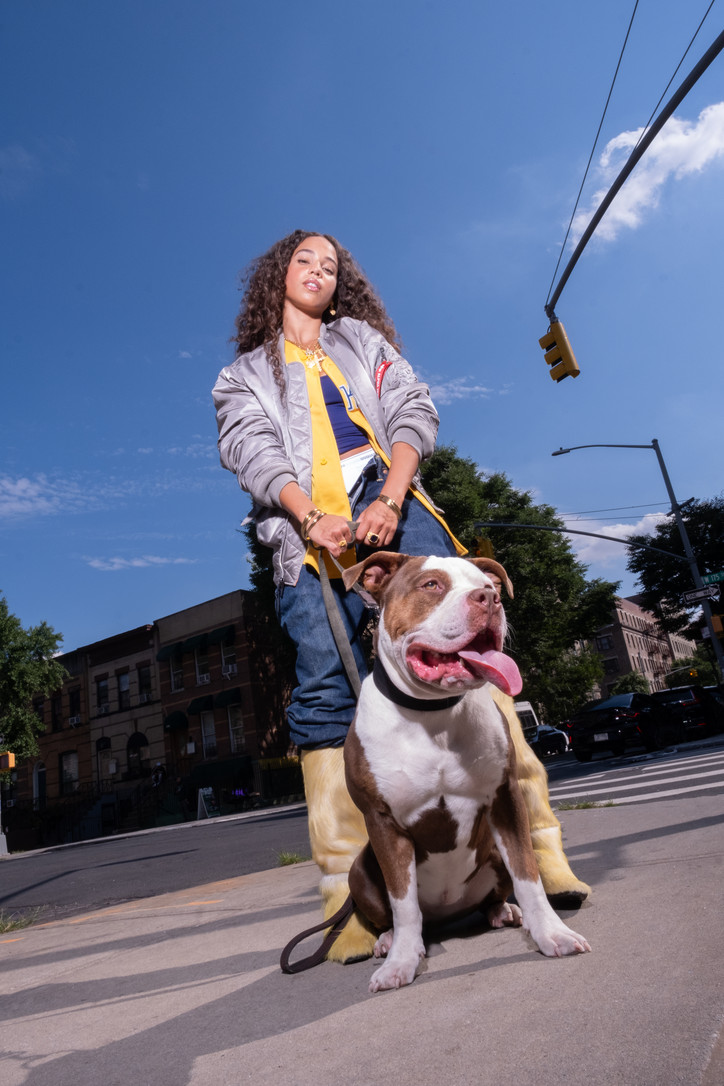
How is it visiting DR now?
I was just there actually. My parents had been out there for a few weeks and both of my mom’s parents and dad’s mom are still in DR so we just hung out with them for a while. I think so much of why I love the Dominican Republic is that, while everywhere changes, the rate of change there is so much slower than in America.
I’m 28 now so it’s different from when I was 4 and living there, but it still feels like you’re going back in time and to a simpler way of living. I used to hate it as a kid, because that’s when everyone started having phones so I’d go and never have service and be annoyed. But now I go back and I’m like, This is incredible, no one can reach me. I’m going to sit in this rocking chair for hours.
Do you have a similar experience when you visit Corona now that you’re living in LA? Has the neighborhood changed much?
It’s actually kind of similar to going to DR in that way. It’s definitely changing — I was jarred the first time I saw a Starbucks pop up — but I feel like it’s still much slower than other parts of NYC.
What’s your favorite spot in Corona?
My favorite spot in Corona — well in New York really — is probably Flushing Meadow Park. Growing up, that's where all the family barbecues, events, and birthdays were. If my parents had a day off from work that’s where we’d go to hang out. Growing up going to Mets games and working at the US Open, that was the center of my world for a lot of my childhood.
Do your early experiences getting together with family in the city inform your approach to shows and performances as an artist?
Yeah, a hundred percent. It’s funny you say that because I saw a post on Twitter yesterday of a group of people watching an MMA fight on a projector on a street in Brooklyn. I just feel like you don't see that anywhere else unless it's a planned event — it’s such a New York thing. That’s why performing at Baby’s was such a pivotal moment for me. I want to feel connected to everyone when I’m performing live, talk in between songs and interact with the crowd in a way that’s genuine and it was easy to do that there.
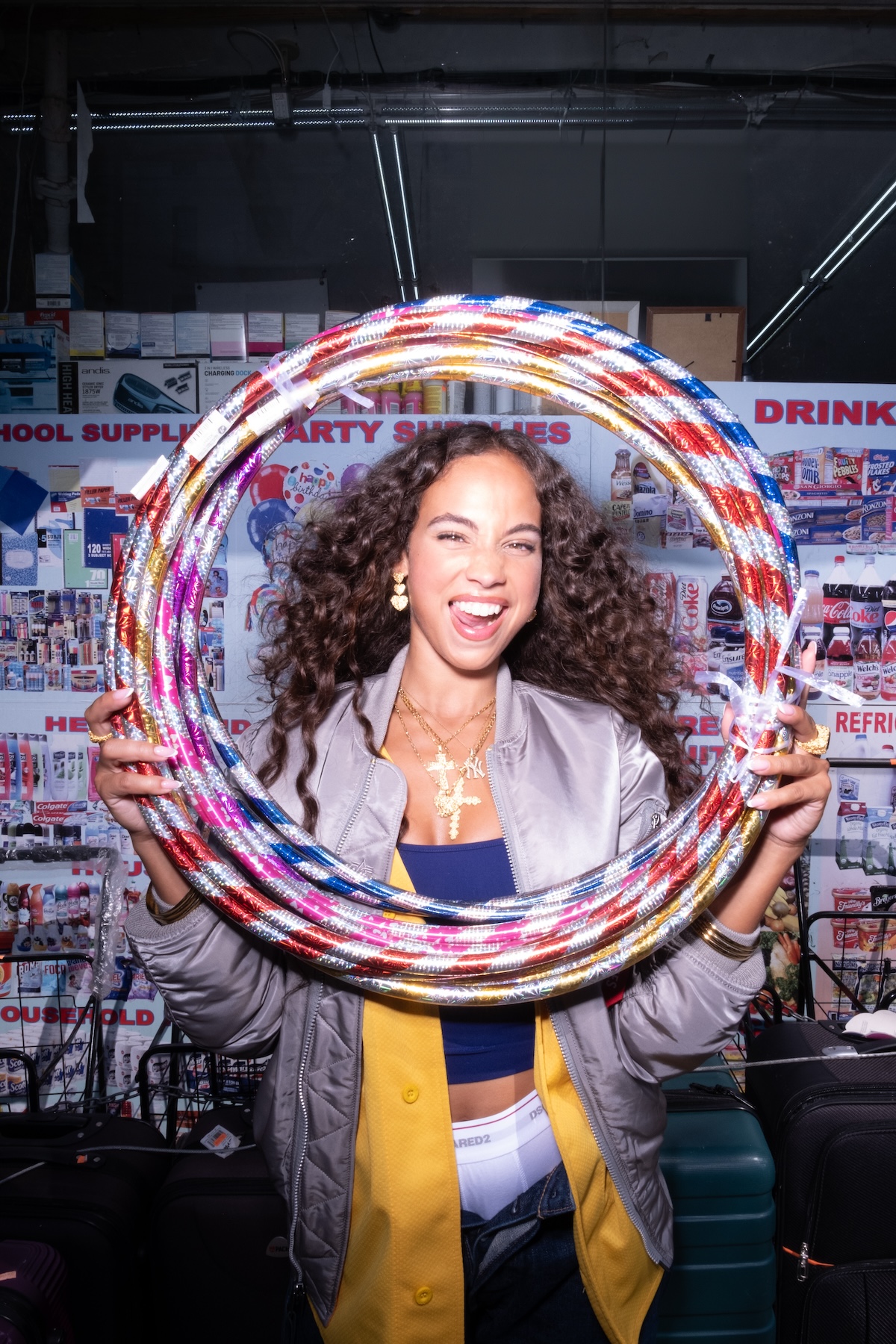
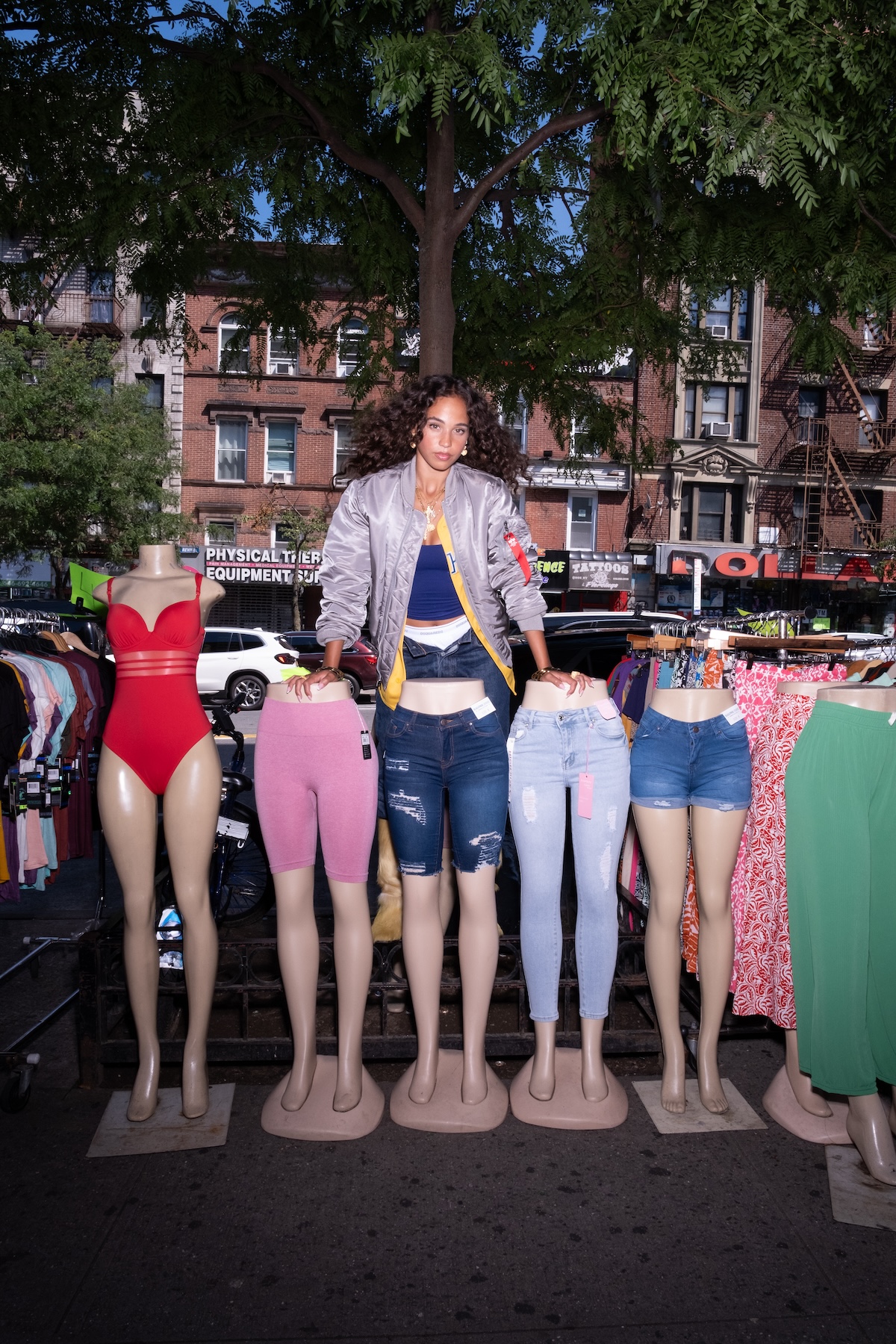
Do you ever feel a tension between creating things for yourself and trying to make it in the industry, especially with the focus on virality and algorithmic songs?
Totally. There’s this balance between singing being how I make a living and it also being something that I consider sacred and I want it to remain that way always. My reminder to myself is basically what we were talking about before, being able to go back to a Lauryn Hill classic or something similar.
I also feel like people are tired of the bullshit already. It feels like we’re reverting to that authentic way of creating. This generation is good at seeing through what’s fed to us. For me, it connects when it’s genuine and I know that’s what’s gotten me this far.
How often are you in the studio these days anyway? Are you working on anything you’re excited about?
I have been in the studio a lot. From a listener's perspective it must feel like so long since I’ve released music, and honestly, it feels long to me too, but I’m having so much fun just trying new things and I can't wait to share.
It’s also been so nice to just live my current life and to have all of these new experiences to draw from — when you’re dropping a project, going on tour, doing interviews, you don’t really have time for that. I feel like I've lived a new lifetime in the last year or two.
Where are you finding inspiration currently in this new chapter or this particular chapter of your life?
A lot of reading and watching a million things. The last book I finished was The Year of Magical Thinking by Joan Didion. It’s so heartbreaking, I was like sobbing over this book. I had no idea what I was getting myself into. And she’s an incredible writer.
And I feel so similar now. What used to feel like the end of the world to me just doesn’t anymore. I’ve been going through all of my experiences with that mindset. The way she goes through those things and keeps living. I know I have to keep living mine until the end.
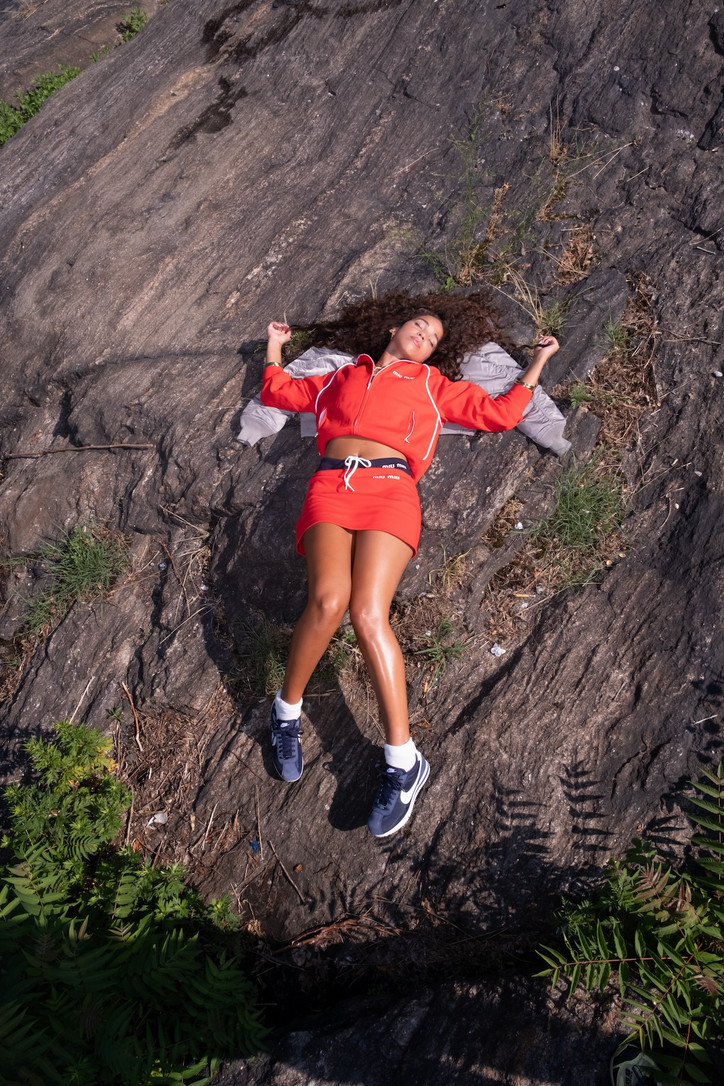
What are you most looking forward to in this chapter you’re entering now?
On the career side, getting to share the new music and figuring out how I want to do that. In a personal sense, new experiences and new people. I know I’m still grieving things, but I have a much easier time letting things go. I understand that people are in my life for a reason, and things just can’t last forever. It’s impossible. It’s funny too because I used to be that kid that was like, You’re my best friend, you can’t go anywhere, I can’t do anything without you, so a lot has changed.
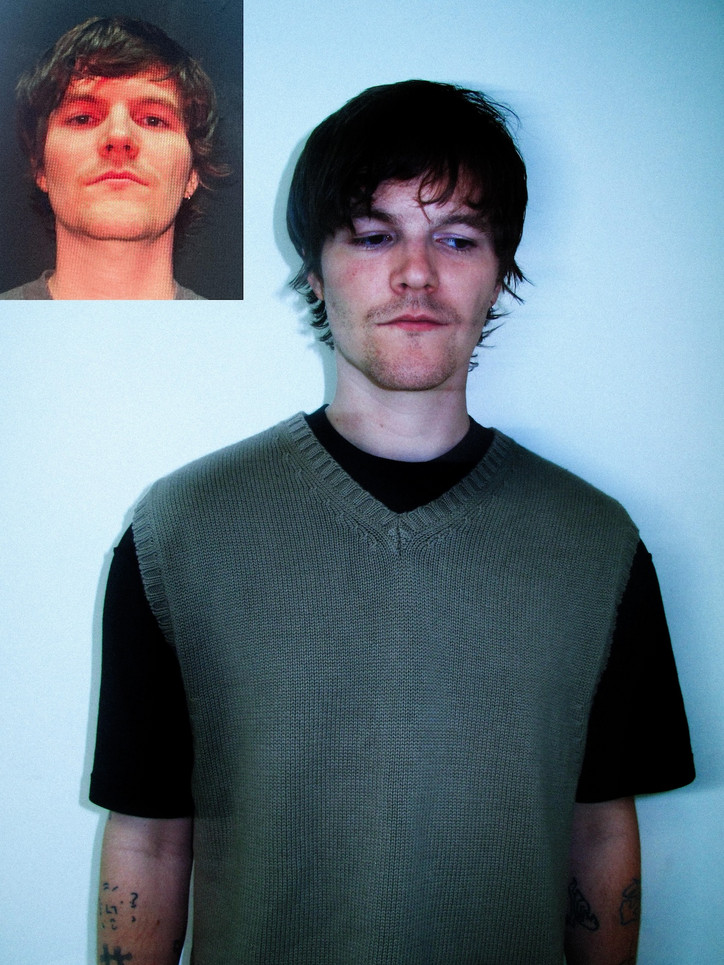
Although the band has received critical acclaim and praise for the recordings themselves, Chanel Beads' immersive performances are in a lane of their own, offering re-worked tracks that take on a whole new life and sound onstage with Shane’s spirited act alongside frequent collaborators Maya McGrory (on vocals & guitar), and Zachary Paul (violin). As of late, Chanel Beads has been on a tear, beating the ‘Dimes Square and Nolita-scene band’ allegations to a pulp with can’t-miss shows. Playing coast to coast and overseas, the band just played another round of shows in the UK before returning to New York ahead of the North American leg of their tour.
Fresh off his return flight from across the pond back to his home in Brooklyn, Shane sat down with office to unravel his unique creative process informed by two "F's" (feeling & function), the drawbacks of performing in caves, and the complicated, toxic relationship artists have with suits, algorithms and streaming platforms like Spotify.
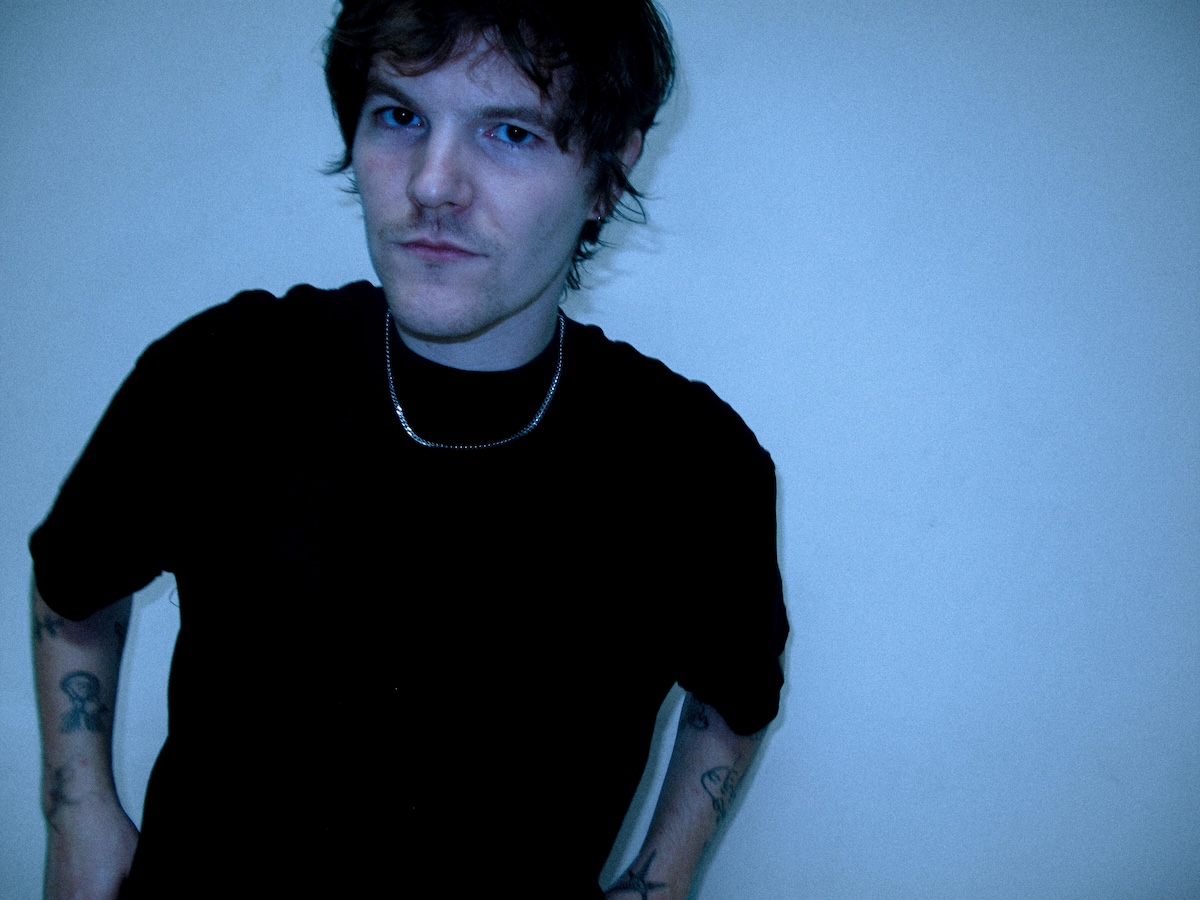
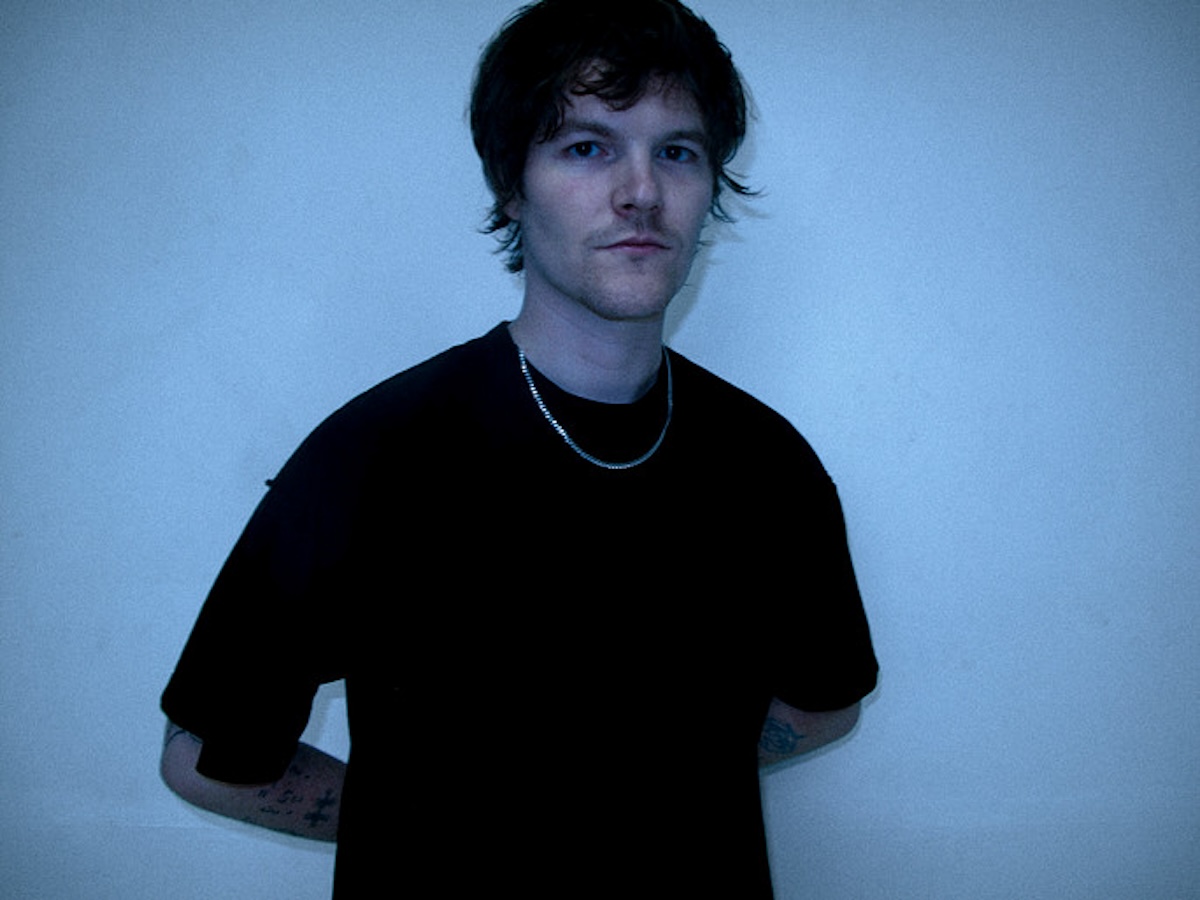
Jack Kissane— My introduction to Chanel Beads was through word of mouth from a friend, which — in my opinion — is kind of the most organic way to discover music. I read that in a past interview, you threw a stray at the Spotify algorithm and the machine that it is. Can you expand on your thoughts about having your music found organically versus the algorithm just pushing it? And have you noticed a huge shift in who attends your shows since "EF" went nuclear?
Shane Lavers— Yeah, definitely. When we were in the uk, there were definitely some really sweet younger people that I think kind of got it from algorithmic stuff or whatever. But I don't know, I obviously have lots of thoughts and things to say [about Spotify], but yeah, you can't really control it, and sometimes I'm worried that the little balloon I was trying to blow up has already popped or something because I feel like my favorite experience with music is kind of more of a private one. And so it’s kind of sad to feel like people encounter it in a way that doesn't feel like it's just theirs. I'd rather have people listen to the music and feel like they're kind of alone with it in a sense. Or they can bring what they want and take what they want from it, or they have ownership over the music because all my favorite stuff, I feel like I have a personal relationship with it or that I have something to say to it and has something to say to me. So yeah, I mean, Spotify is so fucking stupid too. As a business model and everything. It's just brought an untold amount of rot into the music business world, but at the same time, it's so sick to be able to listen to whatever you want. And I guess the one positive thing I'll say about Spotify – but it's not unique to just Spotify – is that through related artists and stuff like that, there's just so much. And then seeing other people post public podcasts or playlists, you can do so much fun music discovery.
Yeah, I guess there are two sides to the coin with that, but I definitely feel you with the personal experience though, like the things I come across organically, just hit differently. Nothing beats randomly stumbling across a sick opener at a random show, because then you have that in-person experience and can attach that artist to a certain moment in time versus listening to an album and then a random song popping up after it on shuffle. Which is still chill, but it’s still fuck Spotify.
Yeah, I don't really know how I feel about algorithmic stuff because for XY reasons, Fuck Spotify, but I think I don't really have a problem with how you come across it so much as if it actually engages with you.
I feel like I get fed a lot of nonsense most of the time, but hey, I mean, we're in the AI era of society now.
Yeah, with your job you're probably more interested in music discovery than I am too. I actually don't really engage. I don't really need to use algorithmic or curatorial music stuff very much. I guess I'm not very conscious of how I'm encountering music these days.
Do you listen to a lot of music now? I mean, I talk to artists and a lot of them say that they're so invested in their own work that it kind of becomes all-consuming and listening to other music can get in the way of original creative thoughts. Do you ever find that to be the case, or are you just completely open to how you listen to music?
I'm pretty open. I've never been like, ‘Oh, I need to work on my album or sound so I need to hermetically seal myself off from influences.’ When I'm working on music, I never don't want to hear something because of the way It will affect the way I'm making music. Because my approach to a lot of the music that I make is based on a feeling. It's not really approaching it with a, ‘Oh, here's a vibe or a sound I want to create,’ so much as it’s more ‘Here's a feeling I want to convey.’ And so as much as anybody will try to rip something off, I won't make a song or finish it or want to put it out unless it's starting from an intellectual or emotional feeling of mine and feel that music is the route to convey it rather than the other way around.
I only ask that because I feel like a lot of the music you make feels self-referential vs. sounding like anything else that I've ever heard. For the past few months, your music has been the coolest stuff to put my friends onto because of how unique it feels. It’s just hard to put a label on it. I am sure you've seen articles trying to put a name to your sound.
Yeah, it's funny. I remember seeing this word when I was really young, and now it’s coming up for my music. Hypnogogic pop or something. So it's kind of funny. I always thought that was not a genre. I don't think of my music as dreamy at all or dreamlike or surreal. So it's kind of funny that people kind of attach those themes to it. My approach just feels kind of like making folk music or just making a folk song. But it's like we make it on the computer, and we don't really have a studio to go to, so it's just like however you can assemble it in kind of an impatient way. I collaborate a lot with Maya [McGrory] and Zach [Paul], and there is kind of this thing of like, ‘Hey, are you free today to help?’ Like I have an idea for maybe a string thing Zach can do, and if he's not free, I'm not going to sit on my thumbs, I'm just going to work on it myself. And then sometimes I'll be like, ‘I like it, this works.’ So with genre and stuff like that, it's just the making of the music to match a feeling. It's just a functional process. Like, I'm feeling this emotion and I want to work on it. That also relates to why I would never be like, ‘Oh, I'm not going to listen to music right now because I’m working on my own stuff.’ Because it's like there's no conscious effort to marry what I'm listening to, to what I'm working on. Because the thing that I'm working on is what I have in front of me. Like we just bought a cello. I dunno, just whatever's there, it's very functional and it's very problem solving in a way. To me it feels like a little unrelated to a certain genre.
Definitely, and you bringing up that functional point makes a lot of sense because I love how you marry synthetic and acoustic instruments together. And it especially comes out in your live show performances. I've seen some of the recorded live performances and at times the songs sound almost completely different than how they do on DSPs. Have you ever performed a song and thought, ‘damn, I wish we recorded it initially and published it that way?’
Yeah, I mean, the way we perform some of the songs kind of leads back to my point about functionality in that it's not really a choice of, ‘Oh, how do I make acoustic autotune music?’ It's just like, you can move quicker with autotune. I can focus on different things than I normally would if I didn't have the autotune on or something like that. And also, I don't use autotune all the time. I feel like people talk about a song thinking it has autotune when it doesn't.
Yeah, because you can sing with a pretty high register just by yourself, right?
With a microphone, you can sing quietly and higher than you can at a show. I feel like at a show, I'd much rather reach those notes by kind of screaming it or yelling it. Man, it's funny, I'm always self-conscious if we're just playing the songs too close to how they're recorded a little bit. But there's a bunch of music where I'm like, if I go back and listen to the recording, I'm like, ‘Oh, this is almost way more wimpy than I thought it was from the way that we've been playing it.’ And I'm kind of like, ‘Oh yeah, I wish I could have brought more intensity to stuff.’ But at the same time, maybe some artists just operate from what kind of music they want to make or something. And I always feel a little bit annoyed in that I feel very limited in what I can do musically in terms of what I feel motivated to finish. I feel like I don't really have enough decision making in my own music because of the functionality of it. It's like it works or it doesn't work to me. And so it just comes out how it comes out. And it's like if I want to make an intense song, I have no idea if it'll come out intense or not. Same thing if I want to make a high energy song or not. I can't really tell if I'm going to end up coming up with one at the end of the night or whatever. Sometimes I start with a high intensity song, but then it turns into this mellower or stranger thing, or vice versa where it's like, I'm trying to stretch something out into this more ambient thing, and then it just comes out totally different. Sometimes it feels like decisions weren't made along the way, even though technically you are making them. It’s more just deciding if something is working or not. It's like if you're tinkering with something and you don't look up and all of a sudden hours have passed and it's totally different from what you thought it was intially. You didn't really feel like you made what it’s in front of you it kind of just took its own shape that way.
Yeah, sometimes it feels like things just take their own course. When I'm writing, sometimes I go in with a certain perspective and things just change along the way, and it becomes something entirely different.
Or when you're talking out loud about something that you don't know how you feel about it until you say it.
Circling back to the live shows, I had heard from the same friend who put me on to your music, that you had done a show in a train tunnel?
Yeah.
Is that the craziest place that you've performed and is there a good story to that?
I mean, we didn't organize the show, so I kind of feel bad because people are like, ‘Oh, Chanel Beads played in a train tunnel,’ But our friends organized the show, and they played too. So I feel like I have to give credit to GodCaster and YHWH Nailgun, the ones who put the show on. We just played first, and yeah, they're the ones who did all the heavy lifting. When the cops came, they arrested one of the Godcaster guys' brother, and they tried to find them. So yeah, Godcaster found this place and organized this awesome show in a train tunnel.
Where was this? In New York?
Yeah, it was in Brooklyn. The spot kind of got blown up because I think we thought we were being clever and playing in a place that was inobtrusive. They talked to the guy living really close to it a week prior, and they gave him some money and stuff, but I guess the spot just got kind of blew up and there was a show there every day for six days. The cops came every day, and a local bar was like, ‘You guys, please stop doing shows here.’ And I was like, ‘Yeah, fair enough. This is actually pretty disruptive.’ But yeah, I dunno, that didn't feel like the craziest place. We've done some weird little runs where it's like we have no idea what the space is until we get there. And then also, what feels crazy to you isn't as crazy to other people where it's like, we played a little loft in France where you could barely see in front of your hand because of all the cigarette smoke and shit. That's new to me, and that was weird. Or we played this place in London where you kind of feel like you're in a grain silo and there's no stage. On tour you're exhausted, and there's different drugs in different cities and stuff, so it's like, yeah, I dunno it's really hard to say what the weirdest one is. There's a venue in Seattle that's like an old pharmacy and they just kept it up. Like, it looks like a fully functioning pharmacy in there…
Y’all were posted up and performing in a drugstore's aisle? That's crazy.
Yeah, yeah. In the lotion aisle! Honestly, if I had to give you one answer on the craziest place we’ve played, my answer would be boring. We played a college where it was like literally during a study hall. Everyone was on their computer with headphones. And I was like, ‘Why the fuck are we here playing this?’ But the colleges have money, so it helps fund the tour. We played the worst show to people who didn’t care about us, it's Tuesday night, and half the people have headphones on and they're just on their computer. To me, that's the craziest show because it's like, what’s the point? Yeah, also with the train tunnel thing, I always call it a cave, even though it's not a cave. It was literally a train track tunnel.
Hey man, this is a written interview, we could call it a cave in the final edit, honestly.
Yeah, yeah. It's up for dispute if it's a cave or a tunnel!
Another thing I think is really cool about your live shows is the intimate aspect that you guys put forth in each show. I think I read somewhere that you would much prefer playing on the same level versus being on a stage above the audience. Is there a certain rationale behind that, or is it just based off preference?
Well, I think, I actually get asked this a lot and I'm kind of trying not to talk about stage stuff in interviews a little bit, because you just play where you're lucky to play. And if people pay to see it, I don't want to act like, ‘Oh, I don't fucking like this stage.’ It's like, if you paid 30 bucks, I'm going to try to give a good show for it. But yeah, I just think people try to pigeonhole us into this. I'm surprised how stubborn people are about what they think live music should be. And so when we play bigger stages, everyone's like, ‘Where's the drum kit?’ And all this shit. And I'm like, ‘I don't know.’ When I think about my most impactful live music experiences, a lot of it's like DJ stuff. I am pretty compelled with the act of playing recorded music in a live setting without being a sample guy or something like that. Because honestly, I don't really feel like a sampler. I don't sample other people, I just assemble it in a way that you would write or do notation or something. So I think there's something really compelling about playing recorded music and seeing how it's interacting with the space, crowd, the night, and the event [as a whole] and then how your emotional response to it can change too when you put all those things together. And so performing to that with recorded music is still really compelling to me. So it's more annoying and there's more expectations that I don't agree with in these bigger stages or bigger arenas, but also maybe a lot of that's projection. I don't know. Yeah, I don't want to imagine an enemy and just be like shadowboxing in an arena because I think someone has a problem with it.
Your Day Will Come is genuinely one of my favorite releases of this year. You put forth these crazy collages of the acoustic with the synthetic, and then you have random sound bites, and ambient textures, and then on top of all of that, you have this violin being such an integral, almost backbone to the project itself, which is just really a cool touch. Was there a certain moment in time or a specific track, the sound all clicked for you? And you're like, ‘Oh yeah, this is my sound.’ Or do you feel like that hasn't happened yet?
Well, I've been making music for so long, and then I just took a big huge break between putting stuff out because I think I was struggling with not wanting to make a whole ambient record, or a whole rock record. I was kind of feeling overwhelmed by distinctions and structures of stuff. And so I think a few years ago I just felt pretty liberated of no longer thinking about them. It's just music, it's just recordings, and you treat any kind of sound source the same and it just becomes functional. And so it's like the reason that I use a lot of synthetic MIDI string sounds on the record is because I think it almost feels like it doesn't get in the way of things. I mean obviously [synthetic strings] have a ton of preexisting connotations in your brain, but if I start from there, I'm like, ‘Well, it's almost like anti sound design music’ or something like that because it's such a ubiquitous signifier of a sound you've already heard. And it's not like an acoustic sound that I'm producing myself. So I think it kind of feels like, ‘Okay, now that that's out of the way, now I can focus on what kind of thought or feeling that I want to explore at that point.’ It’s like finding yourself in an already existing thing.
Another thing that really stands out to me with Chanel Beads is the aesthetics and the visuals that you use for all the releases with the album covers, music videos, or even the visualizers. It is all really either incredibly nostalgic or super eerie, almost as if you collected them all from an untouched storage attic where there’s an 18th-century painting right next to a bunch of dusty VHS tapes. How'd you come up with this creative direction? Is that led by the music or kind of vice versa?
It's definitely not led by the music. It's kind of, just my taste, *laughs* I guess. Yeah I feel really critical of visual art styles because I'm almost salty that some stuff that I really like, that I feel like maybe I was doing at the time, is just so easy to replicate. So by the time you're like, ‘Oh, that's cool,’ everyone can just do it. And if you put, I don't know, the iPhone Flash 0.5 camera thing, that's just what everything looks like now. So it's cool because it's like democratized. But yea I don’t know, it's funny, a lot of people seem to see it as this big, unified...
... "Unified Thought?"
Yeah. [Laughs] This unified art thing that I'm doing, doesn’t really have a ton of intention behind it, honestly. Maybe I'm failing at what I'm trying to do because I’m not trying to have the visuals get in the way of the music, but maybe they're calling too much attention to themselves and maybe I have to rethink the approach. But I think I'm always worried that the music is too nostalgic because to me it's not, it's usually about reckoning with an issue that I have in the moment. So it's not really nostalgic, it's just maybe about the cumulation of a feeling or emotion. So I think because there's that kind of, ‘Where have we been? Where are we going?’ thing that reads like nostalgia to people. Like [Your Day Will Come's cover art] is just a painting that I liked, but I really liked this one little section of it. I just thought it was compelling. I guess the artwork was inspired by the music in a sense of, I think it's interesting to kind of try to have something feel like it extends beyond the frame, but also have the piece of it represent the whole, but also at the same time comments on the whole in a way that maybe misrepresents the whole. So I think it's by just focusing on this one girl's expression, you're missing the huge fire, which I think is actually the center of the painting. The painting is called Midsummer Eve Bonfire on Skagen Beach. I feel like that kind of mirrors, I guess some of the approach to the sentiment of lyrics and then the sentiment of the approach to constructing the sound. As much as I'm like, nothing's thought out, I think it's an approach that I like when I'm not thinking about the approach itself, but rather when my music just works its way into its own thing.

We sat down with Lone after his packed performance at Ksubi’s NYFW event, where smoke filled the air, and people spilled out from the dressing room into the cobblestone streets of SoHo, which had just been defaced with spray paint — someone's Mercedes-Benz caught in the crossfire. In our conversation, Lone spoke about his journey with manifestation, his decision to live without a stylist, and the meaning behind the term aura, which frequently appears in his comment sections.
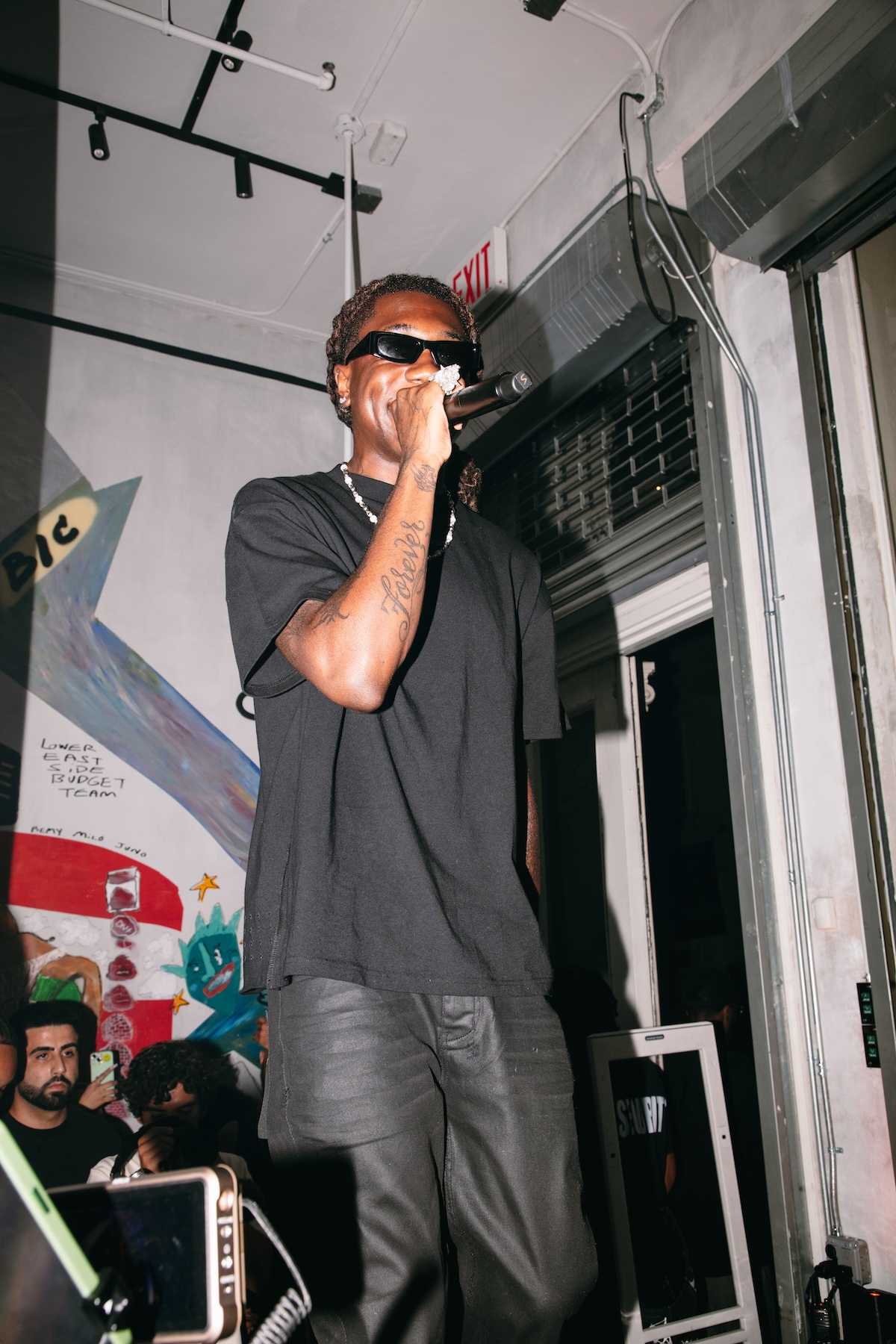
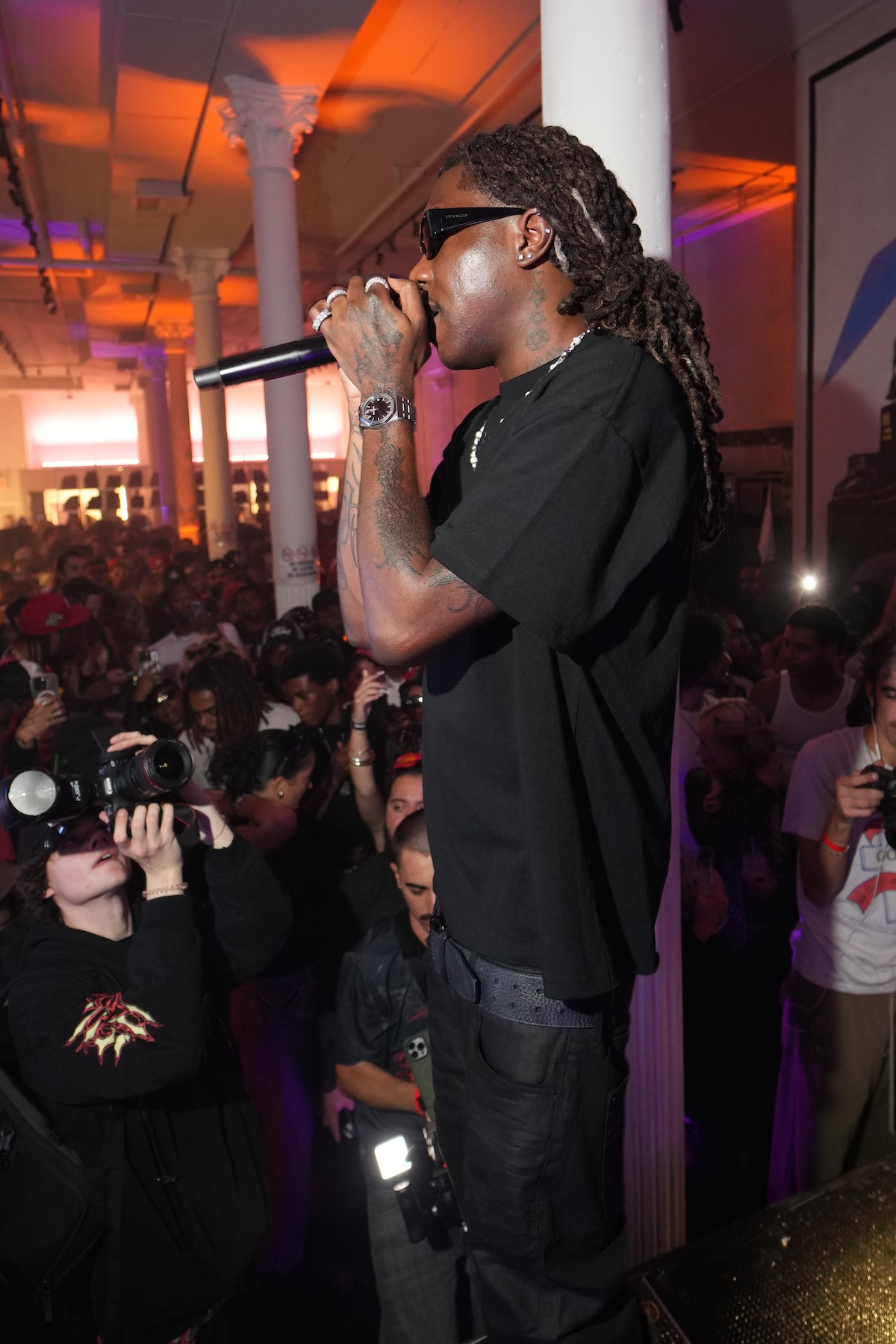
Jack Kissane— Lone! How’s New York Fashion Week been treating you?
Destroy Lonely— It was lit. That shit was cool.
How's it been the weeks following the release of the album?
Shit, I've been enjoying just seeing everybody's reactions and listening to what my friends got to say and my family and shit. It is been a really good time actually.
That's awesome to hear. It's currently #1 on Billboard's top R&B and Hip-Hop Album chart right now. How's it feel to get recognition like that?
Shit, I don't know how it feels yet. I would never really understand and try to even judge myself by shit like that, but I just appreciate my fans and shit for fucking with me enough for something like that to happen and I feel blessed.
You talk about listening to feedback from your fans. Is that usually how you measure success after dropping music? How do you know if something's hitting for you?
Well, it definitely starts with me and my friends and my team first and then from there I look at how my fans are reacting and shit and that definitely for the better, or for the worse affects how I feel about what I have going on at the time.
The album is pretty inescapable in my world, and personally my favorite cut off of it is the opening track "Forever." The way the song builds with the instrumentation into your verse is crazy. Who sang the intro to the track?
Yeah, it's a sample from this band called All Saints, but yeah [lil88] had found a sample through my fans in a way.
How heavy of a hand do you have in the creative direction for everything we see as fans?
It is totally my hand, that part. Everything creatively is done on my end from the music to how it looks to how it sounds. Everything comes from my brand and then I push it out to whoever can help me execute the vision that I have. But it always starts from me just having some random idea that I want to bring to life. It always starts with me and it always ends with me.
Throughout the project and on your Instagram there's a constant theme of you talking about Baby Money. Where did that name and image come from and what does that mean to you?
So it really started with my friends Ken & 88. They used to call me 'Money Lone' and then got all my friends to call me that at the time. I was the youngest so I just kind of changed it into "Baby Money," but that just started from some real personal friends, joking around shit.
Word, I mean that song ["Baby Money'] off the project is definitely up there as one of my favorites too. I'm 20 years old and in school and so obviously you and your music are almost inescapable, but especially "Baby Money," I hear it from the time I wake up with my friends playing it in the crib, to commuting to school through my own doing, then especially at the functions. It's reallly playing everywhere man.
That's hard!
Do you have a favorite track to perform? Obviously you haven't performed tracks off the new album yet, but going into this new tour, how do you think your sets will differ from your No Stylist tour and do you have a favorite song that you're looking forward to performing?
Yeah, totally. I feel like the sets will just be way more energetic, way louder, way crazier, just because of the tone of the music that I dropped this time, but also a lot more welcoming to old and new fans. I got a larger discography of music now I guess, so I'll be able to mix a whole bunch of things together and play with my sounds and shit. But I'm really excited to perform "PASS ME THE KEYS," "LOCK IN," "SAY THAT, and "NO WORRIES." Like I want to perform all the lit songs for sure. I don't see myself as the craziest most turnt up artist, so it's like now I feel like I got some bangers that I could do that with.
Beyond music, what's your favorite medium to express yourself with? Do you have any hidden talents? Or how are you spending your time beyond the studio & stages?
[Laughs] Nah, I wish I could paint. That's pretty awesome. But yeah, I got a lot of things that I'm into outside of making music. I actually do really like four-wheelers and dirt bikes and shit. I like snowboarding, I play video games a lot, and I like fashion of course. I don't know I'm just really simple to be honest like I'm just inspired by life and everyday shit, honestly. I just live in my brain for real.
I've seen recently you did a shoot with Alpine Reserve. Is that shift in the stuff that you're wearing and you're style overall due to these new experiences as far as going on tour and visiting different cities and doing outdoor activities?
Yeah, a million percent because everything I do is inspired by something that I got going on in my real life at the time. I don't really just be pulling shit just from nowhere, so a hundred percent inspired by shit that I'm on. I just got some fast ass cars and shit. I'm just doing some X Games shit. [Laughs] That sounds corny, but I don't know. That's just how I feel right now.
Before the rap money came through what was your closet looking like? Like what were you stepping in when you were in high school?
Shit, when I was in school I was broke as shit, so I was wearing fucking Vans and Converse. It was normal H&M, black skinny jeans, and whatever. Or just any cool T-shirt I can get my hands on. Then I started making my own money doing whatever the fuck I was doing back then. I would wear Supreme and Palace. But I don't know, I got into clothes mad early because even before I was rapping for a little period of time in between and after school and shit, I had found a way to make money so I wasn't fucked up or nothing. I just wasn't rich as hell.
You described wearing Palace and Supreme. Did you grow up skating or was it just like you were tapped in with skate culture and that was the shit to wear?
Both. When I was at 12, 13, I was really really into skateboarding. I wanted to skateboard so bad, but then I had fell and fucked my arm up and I just gave up on that shit. But I love skate culture. That shit is another piece of the world that inspired my whole existence.
Yeah totally, I grew up on the same shit being close to soccer but always idolizing skate culture and live that to this day. Because yeah, fashion-wise, skate culture has always had an instrumental role in what people are wearing and what's cool or not. Recently you've worked with more so capital-F fashion labels like Givenchy, Marc Jacobs, and notably 1017 ALYX 9SM. What is your favorite brand to work with in the fashion world?
I couldn't necessarily say that I have a favorite just because I appreciate the art entirely and I'm just honored to be able to put my 2 cents in or just push the culture forward in any way. So I can't necessarily pinpoint a favorite, but I do love that world and respect it because I'm a student of shit and I didn't come up going to fashion school or really knowing too much about clothes unless it was something that I was into or wanted to study. So I'm just learning and just appreciating it for real.
When do you think you became a student of the fashion game? Was that a recent thing? I know that you said that you've been tapped in with the culture for a minute, but as far as really studying the art of it itself, did that only come recently with all of the success you've been having in music?
No, fuck no. No way. I've been the same person way before I was "successful" in music. I wouldn't even look at myself right now as being that successful. I guess I got a different definition of success, but hell nah, bro. I didn't have this shit, but I was definitely well aware of what I liked and what I wanted to learn about and the actual, I guess for lack of better words, textbook knowledge of fashion, brands, and designers way before I ever put on some [designer] clothes and it definitely didn't have nothing to do with money or rapping.
I've read that you're super into and grounded in manifestation, and in this interview, you've mentioned the different ways that you perceive success. Who or what got you into manifestation?
Honestly, my mom and my grandma for real. They raised me telling me I can do whatever the fuck I want. My folks weren't restricting me or telling me I can't do this or that. They was just always supportive and just saying 'Shit, if you could believe it, you could do it.' Literally from the time I popped out the fucking pussy, that's what n*ggas was telling me. So it is not something that I got into or something that I learned. It's just I always been like that my whole life. Believing in anything I want or feel like I could achieve and get. I guess that's just how I am as a person. And then I learned that it was called manifestation and all that shit and all the extra intricate words that people throw on top of it. I learned that shit and realized, "Oh, I've been doing this my whole life."
What's it like having such an instrumental role in one of the most influential moments in music and culture right now as far as being a part of Opium?
I really just am honored to be a part of something like it and I appreciate my older brother [Playboy] Carti for giving me the opportunity to stand next to him. And also, I appreciate my brother Ken (Ken Carson) my brothers Homixide Gang. It is something that I cherish a lot and I personally don't want anything to change or nothing. I'm very happy with where I'm at and I'm happy to be here.
Lastly, what are your thoughts on the term aura and are the fans dragging it?
[Laughs] I feel like I shouldn't answer this, but I will. They just need to let people live, man. I feel like I'm getting old. I just don't understand the internet anymore. I don't understand what's right. I don't understand what's wrong. I just know I'm going to do what the fuck I'm going to do and shit... [Laughs] Fuck that!
